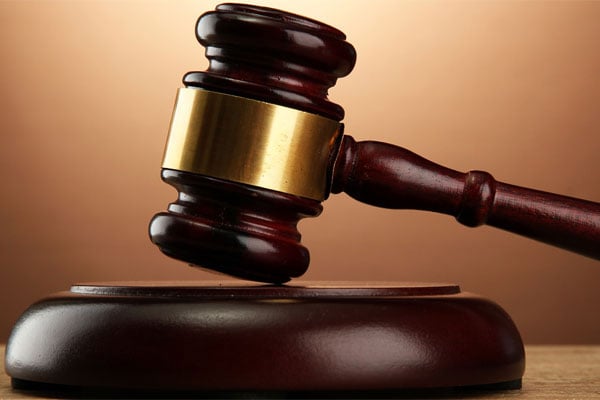EACJ boss urges journalists to popularise its activities

Right to Left: Ms Christine Mutimura, the Deputy Registrar EACJ, Mr John Okanda, official from Unesco, Dr Henry Oneria, the former President Uganda Law Society, Mr Nestor Kayobera, the President EACJ, and Mr Don Deya, the CEO Pan African Union after a training of journalists in Arusha, Tanzania on March 28, 2024. PHOTO/ABUBAKER KIRUNDA
What you need to know:
- When we were appointed in 2021, we decided to take the court to the common person and this training for journalists about our activities is an implementation of the provisions in the treaty,’’ Mr Kayobera said.
The President of the East African Court of Justice [EACJ], Mr Nestor Kayobera, has asked journalists to interest themselves in reporting about its activities in order to make it popular among justice-seeking people.
Mr Kayobera observed that the court was established for all people in the East African Community (EAC) partner states to find justice, but very few are utilising it due to limited visibility in communities.
Mr Kayobera, who was addressing journalists from the EAC partner states in Arusha, Tanzania during a three-day training organised by the EACJ in conjunction with Unesco, said it is the media that will show people what the court is doing for them to make use of it.
"When we were appointed in 2021, we decided to take the court to the common person and this training for journalists about our activities is an implementation of the provisions in the treaty,’’ Mr Kayobera said.
He further explained that for easy access to the services of EACJ, coordinating offices are being opened in partner states to enable people file cases without traveling to the headquarters in Arusha, Tanzania, where the EACJ sits.
Mr Kayobera told journalists that court conferences are also being rotated in the partner states, as a way of creating impact in communities about the activities of the court for more people to appreciate the work of the court.
He reiterated court’s commitment to work independently to encourage people filing cases to get due justice.
The EACJ Deputy Registrar, Ms Christine Mutimura, however, said the court does not handle appeal cases arising out of the cases handled at courts in partner states.
‘’We have had people coming to us asking whether they can appeal against a matter decided by a court in their partner state, and we have told them that the answer is no," she said, adding that the EACJ is also yet to start handling criminal cases, but with emphasis on civil matters filed by people staying in partner states.
She said sub-registries have so far been established in Tanzania, Rwanda, Uganda, Kenya and Burundi to ease movements for people who may wish to seek justice at the Tanzania-based EACJ.
According to Ms Mutimura, the sub-registries are supposed to be fully electronically equipped to enable clear court proceedings, but decried the inadequate court funding by partner states, which she said creates case backlogs which currently are about 208.
Mr John Okanda, who represented Unesco, expressed the organisation’s continued commitment to support the activities of EACJ to bridge the missing gaps, and challenged journalists to apply skills obtained during the training for effective reporting on EACJ issues.
Some of the skills he said, include the technicalities of how the EACJ works, which he said will give journalists some mileage in making its activities visible to people.




